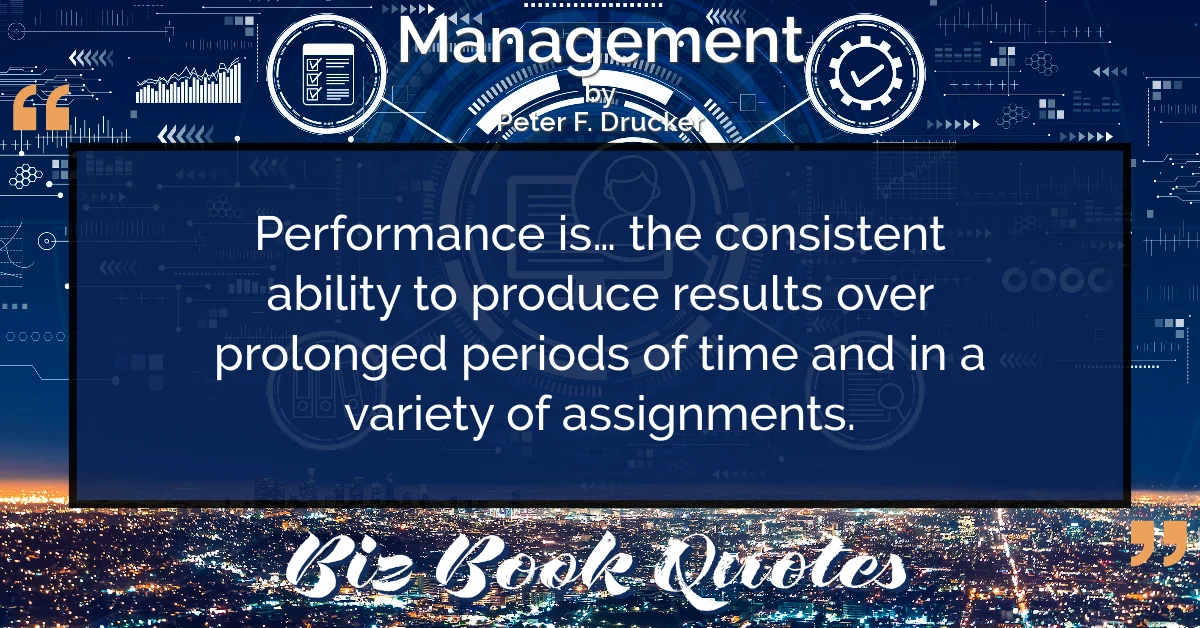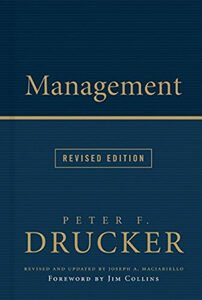|

|
Management:
A performance record must include mistakes. It must include failures. It must reveal a person’s limitations as well as strengths.
|
281 |
|

|
Management:
The better a person is, the more mistakes she will make – for the more new things she will try.
|
281 |
|

|
Management:
A management that does not define performance as a balance of success and failure over a period of time is a management that mistakes conformity for achievement, and absence of weaknesses for strengths.
|
281 |
|

|
Management:
The person who consistently renders poor or mediocre performance should be removed from the job for his or her own good.
|
281 |
|

|
Management:
Performance is… the consistent ability to produce results over prolonged periods of time and in a variety of assignments.
|
281 |
|

|
Management:
One owes it to the manager’s subordinates not to tolerate poor performance in their boss. They have a right to be managed with competence, dedication, and achievement.
|
282 |
|

|
Management:
…where loyalty has been received, loyalty is due.
|
283 |
|

|
Management:
An organization will have a high spirit of performance if it is consistently directed toward opportunity rather than toward problems.
|
284 |
|

|
Management:
A management that wants to create and maintain the spirit of achievement… stresses opportunity. But it will also demand that opportunities be converted into results.
|
284 |
|

|
Management:
One has got to face up to a very simple, very brutal, very harsh rule – one starves the problems and one feeds the opportunities.
|
285 |











